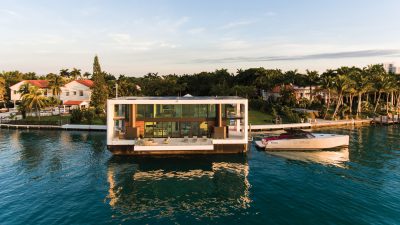
Transport of goods in ecological truck sustainable. Green environmentally friendly transport and shipping.
In the context of reducing the carbon footprint of passenger and public transportation, electric cars, and even electric buses are increasingly being used. On the territory of the European Union, replacing internal combustion vehicles with them in the future is not just a pious wish but a ready-made plan, the implementation of which has already begun and should be completed by 2035. After all, from then on, no new cars and vans will be allowed to be registered in any country that is part of this agreement. These used ones can be used, sold, and bought until the end of their useful life.
While in the case of passenger cars, customers are becoming more and more convinced of electric motors, the electromobility of the truck segment still raises many questions. In 2022, this type of vehicle accounted for just 0.6% of all vehicles used for road transportation*. Although more manufacturers are offering to increase efficiency and range, replacing the internal combustion vehicle fleet with them is still a plan for the distant future.
It must be admitted, however, that the preliminary statistics look impressive. According to a study by The International Council on Clean Transportation, hydrogen fuel cells in trucks can reduce greenhouse gas emissions by 15-33%. In addition, if so-called green hydrogen – produced using renewable energy – is used to power them, emissions drop by up to 89%**.
Investors looking for zero- and low-carbon solutions are now leaning towards the rail transportation segment, which is showing considerable success in this regard. Trains are today regarded as one of the most efficient ways to transport a large load over a significant distance with minimal CO2 emissions. In some European countries, it is already possible to encounter almost 100 percent zero-emission railroads.
What solutions will reduce the transportation industry’s carbon footprint?

Road train, Australia. A novel form of freight
One of the most essential ways to decarbonize the transportation industry is undoubtedly to use green modes of transportation as much as possible. We are primarily talking about rail transportation, which offers the highest energy efficiency and lowest greenhouse gas emissions. However, there is no doubt that the decarbonization of road transportation is an ongoing process, and electric trucks have the potential to dominate this market over time.
However, it is worth noting other solutions that could determine the reduction of the carbon footprint of freight transportation. These include such issues as:
- route optimization – thanks to modern TMS systems, logistics companies can plan routes in such a way that covering them has the least possible impact on the environment, regardless of the mode of transport chosen;
- cargo consolidation – assembling several smaller loads heading in the same direction into one large one translates into efficient use of transportation space. This can reduce the number of cars, trains, or planes in use, resulting in lower CO2 emissions;
- efficient transport management – modern technological solutions can be used to plan the transport route and monitor it from loading to unloading. This will make it possible, among other things, to control fuel consumption, as well as driver habits, which can affect a higher carbon footprint;
- preventing damage to goods in transit – by protecting the cargo you are transporting from spoilage or damage, you reduce the risk of having to transport it again;
- efficient vehicle fleet – by performing regular maintenance on the means of transportation that make up your fleet, you reduce the risk of unforeseen breakdowns and accidents. While in the case of truck transport, this is a way to reduce wasted fuel and wasted time, in the context of shipping, this equates to reducing the risk of causing an environmental disaster.
Sustainable logistics is not just about transportation itself

Amazon’s first drone, Prime Air
While transportation is by far the part of the logistics process that has the most significant impact on the environment, it is not the only one. The construction and organization of warehouses and distribution centers also significantly impact the industry’s carbon footprint.
Concerning the buildings, using renewable energy and water sources, among other things, is essential. We are talking, for example, about the use of photovoltaic installations and heat pumps, rainwater harvesting, and even the use of gray water and carbon dioxide to cool buildings.
And remember eco-friendly materials for packing goods for transport and storage. Meanwhile, goods management at the destination will be improved by so-called beacons, which are miniature electrical devices that inform, among other things, about the location of a particular cargo. This will make it possible to plan unloading optimally, as well as to organize storage space.
Selecting the right partners who share similar values will also help reduce the company’s carbon footprint. It is an excellent idea to outsource the planning of transportation processes to a company with relevant experience in this field and a wide range of available options. Road, rail, sea, or air transport organized in cooperation with the transport and logistics company AsstrA will work perfectly in this role.
Introducing solutions to reduce the carbon footprint of a logistics company will undoubtedly take time to succeed. To ensure that all processes work flawlessly and do not cause losses in the interests of investors, it is worth taking the help of professionals in this field. It is not worth rushing in the context of changes aimed at decarbonizing freight transport. It is better to do it gradually but effectively – instead of betting on greenwashing, which does not contribute to reducing the problem.





